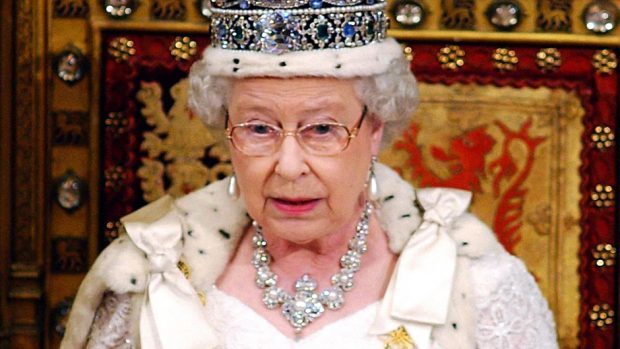Every household will get the legal right to access high-speed broadband under plans unveiled in the Queen’s Speech.
The UK Government also confirmed legislation to enable the future development of the country’s first spaceports yesterday as it set out its programme for the next 12 months.
Two Scottish sites – Campbeltown and Glasgow Prestwick – are still in the running for the spaceport, along with Newquay in Cornwall and Llanbedr in Wales, after the team behind a bid for Stornoway ruled themselves out.
The speech additionally emphasised the Tories’ commitment to secure the long-term future of the Trident nuclear deterrent.
And it confirmed plans for a sugar tax on soft drinks – announced in the Budget – as well measures to crackdown on extremism.
But the government immediately came under attack that the programme was lacking in substance.
Reactions to the speech also exposed the depth of rift within the Conservative Party over Europe.
Former work and pensions secretary Iain Duncan Smith criticised the absence of a Sovereignty Bill to assert the primacy of the UK Parliament.
He accused David Cameron of ditching the plan – and other contentious issues – in order to improve the chances of a Remain vote in the June 23 referendum.
Liberal Democrat MP Tom Brake said sovereignty had been the “buzzword” when the PM was “courting his party” to support remaining in the EU.
But he went on: “A few months later, the Conservatives have ripped themselves apart and there’s no mention whatsoever.
“I’d like to think that’s because Cameron has realised that pooling our sovereignty through the EU makes us safer, stronger, and better off.
“What’s more likely, however, is that it was a cynical tactic to stop Boris Johnson campaigning to vote leave and now that Boris is, there’s no reason to follow through.”
Downing Street later confirmed ministers were still working on measures to assert UK sovereignty and would bring forward proposals “in due course” if voters opted to stay in the EU next month.
Opposition MPs pounced on the speech – with SNP Westminster Leader Angus Robertson MP branding it a “wasted opportunity” for progressive action on pensions, social security and the economy.
He added: “It is business as usual from the Tories – and utterly weak, when there is so much to be done.”
First Minister Nicola Sturgeon also criticised the Westminster government for remaining “narrowly and obsessively focused” on austerity.
And she reiterated her firm opposition to Trident renewal, as well as “any weakening of human rights protections” via a proposed Bill of Rights.
Labour’s shadow Scottish secretary Ian Murray MP said the speech showed the government was “running out of steam and failing to deliver for working people”.
But Mr Cameron defended what he called a programme of progressive reform which will “extend life chances for all”.
Under the Digital Economy Bill, a new broadband universal service obligation will be introduced.
It will give people a legal right to have a fast broadband connection installed, although a reasonable cost threshold – above which the most remote properties may be expected to contribute to the cost of installation – will apply.
The bill also contains measures to make switching providers easier for customers, ensure automatic compensation when things go wrong with a broadband service and furnish consumers with clear information about speeds from different providers.
Northern Isles MP Alistair Carmichael, who had been calling for such reforms, described them as “one bit of light”.
Ministers said the Modern Transport Bill would put the UK at the forefront of technology for new forms of travel, including driverless cars, drones and space planes.
They aim to have an operational spaceport by 2018, which could be used to launch tourists into space as well as commercial satellites.
Outlining the plans in the House of Lords, the Queen said her government would use the opportunity of a “strengthening economy” to deliver security for working people and strengthen national defences.
